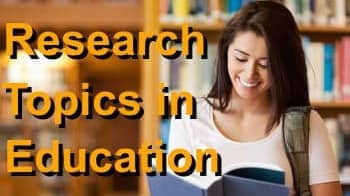Educational Psychology
Educational Psychology deals with the method one learns what they have been taught, how they learn and remember it in detail from various age categories.
Johann Herbart who is regarded as the Father of Educational Psychology believed that the outcome of learning is directly proportional to the interest the student had in what she/he learns.
Johanningmeier E.V. (2012) Herbart, Johann Friedrich. In: Rieber R.W. (eds) Encyclopedia of the History of Psychological Theories. Springer, New York, NY. https://doi.org/10.1007/978-1-4419-0463-8_134
Psychologists, frequently work with children one-on-one, as well as in cooperation with parents and teachers, to improve a child's learning process. Educational psychologists can work in a range of environments, including schools, community organizations, government research institutions, and learning centers, as researchers, consultants, and teachers.
PhD in Education
A PhD in Education is the highest degree that may be obtained in the field of education. As a matter of fact, you may be qualified for a variety of educational leadership positions in the public and private sectors. Many professionals participate in PhD in Educational programs in order to answer pressing concerns or solve a timely issue in the field. You'll conduct innovative research with the help of educational leaders and experts, then present your results in a dissertation that will add new knowledge to the field.
Are you looking for a way to earn your PhD in Education in a convenient, flexible manner that works into your busy schedule?
HIGS would be your Perfect Choice!!
HIGS is the place to go for help with all of your PhD-related projects. We understand how difficult it is to maintain a steady pace during your PhD. It may eventually lead to work-related stress and frustration, which might spill over into your personal lives. With a little help and assistance from HIGS, all of this worry and frustration can be avoided.
We Offer Variety of Services
- Research Paper Writing
- Research Proposal Writing
- Selection of Topic
- Review Paper
- Implementation process
- Thesis Writing
- Editing & Proofreading
- Guideship
At HIGS, we have a competent team of professionals in a variety of fields who will help you create one-of-a-kind research project. Our team has worked with over 4500 scholars in a variety of disciplines, giving us a wealth of experience in all aspects of our services.




